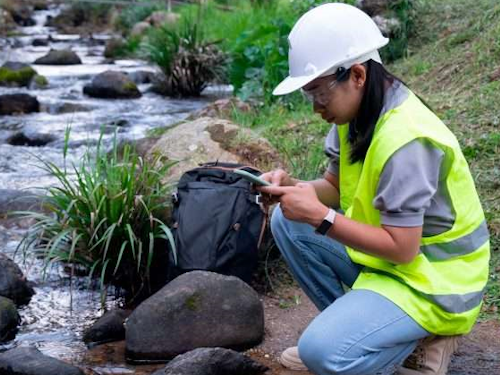Environmental Engineer

Image source: Blue Ridge Community College
An environmental engineer develops solutions to environmental problems, focusing on areas like pollution control, waste management, and sustainable design to protect and improve the environment.
Key Responsibilities
- Designing and implementing systems to reduce air, water, and soil pollution.
- Developing methods for waste treatment and disposal, including recycling and hazardous waste management.
- Conducting assessments to evaluate the environmental impact of construction projects and industrial activities.
- Ensuring compliance with environmental laws and regulations, and preparing necessary documentation for permits.
Required Qualifications
- Bachelor's degree in environmental engineering, civil engineering, or a related field (minimum).
- Master's degree in environmental engineering (often preferred).
Career Pathways
- Environmental Health Engineer
- Environmental Engineer
- Director of Environmental Health
- Environmental Health Consultant
Related Organizations and Employers
- American Academy of Environmental Engineers & Scientists: AAEES
- Environmental Engineering and Science Foundation: EESF
- Association of Environmental Engineering and Science Professors: AEESP
- EnvironmentalScience.org: Health Safety Engineer
- Environmental Protection Agency (EPA): EPA Careers
- Centers for Disease Control and Prevention (CDC): CDC Careers
- World Health Organization (WHO): WHO Careers
- Pan American Health Organization (PAHO): PAHO Careers
Science Careers Technology Careers Engineering Careers Mathematics Careers Medicine Careers